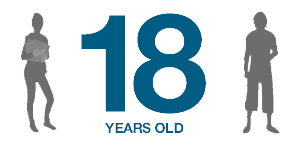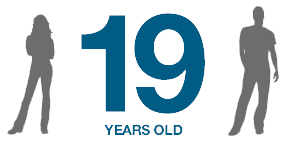Legal Drinking Age in Canada
In Canada, each province and territory defines the legal drinking age. This regulates who can purchase, possess, consume and supply alcohol. Canada’s drinking-age laws have a significant impact on youth alcohol-related harms. For more information, please refer to The Impact and Effectiveness of Minimum Legal Drinking Age Legislation in Canada.
The legal drinking ages in Canada are:

Alberta
Manitoba
Quebec

British Columbia
New Brunswick
Newfoundland and Labrador
Northwest Territories
Nova Scotia
Nunavut
Ontario
Prince Edward Island
Saskatchewan
Yukon
Alcohol Pricing in Canada
In Canada, alcohol is taxed based on excise duty rates for each type of beverage. This taxation is an effective way of controlling the availability and consumption of alcohol. It also helps support a culture of moderation. In general, higher prices mean lower consumption, which helps reduce potential risks and harms.
Based on existing Canadian examples of best practices, the National Alcohol Strategy Advisory Committee (NASAC) recommended that liquor boards and commissions:
- Apply Social Reference Prices (SRPs) to all types of alcoholic beverages;
- Ensure SRPs reflect the alcohol content of drinks within each major beverage class;
- Regularly review, maintain and update the value of SRPs relative to provincial consumer price indexes; and
- Close existing loopholes that allow the sale of alcohol below SRPs.
Enhanced Alcohol Container Labels
Bottles, cans and other alcohol container labels in Canada are not required to display nutrition information, health warnings, standard drink information or low-risk alcohol drinking guidelines. This information would help people make more informed decisions about their alcohol consumption. Evidence also suggests that enhanced alcohol container labels:
- Are supported by the public;
- Can improve consumer knowledge of alcohol-related risks; and
- May help people decrease the amount of alcohol they purchase and consume.
Heading
Enhanced Alcohol Container Labels: A Systematic Review (Report at a Glance)
Summarizes key findings from the technical report of the same name that analyzes the published research on alcohol labels with nutrition information, health warnings, standard drink information and low-risk drinking guidelines.
Heading
Enhanced Alcohol Container Labels: A Systematic Review [report]
Analyzes the published research on alcohol labels with nutrition information, health warnings, standard drink information and low-risk drinking guidelines. Key findings show alcohol drink labels with this information improve consumer...
Municipal Alcohol Policies and Initiatives
A municipal alcohol policy provides guidance on running safer events on municipally owned or managed property where alcohol is available. These venues include festivals, sport stadiums and community centres. These policies can:
- Help keep neighbourhoods safe and enjoyable;
- Address concerns about the risks and liability related to alcohol;
- Set community expectations about alcohol consumption;
- Foster community ownership through engagement;
- Set conditions about the availability and access to alcohol; and
- Support healthy lifestyles through community groups.
For more information about municipal alcohol policies, please see Municipal Alcohol Policy in Ontario: A Public Health Approach, The Nova Scotia Municipal Alcohol Project and The Municipal Alcohol Policy Program in British Columbia.
